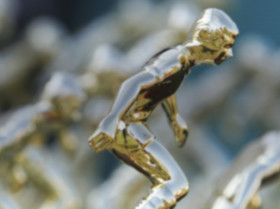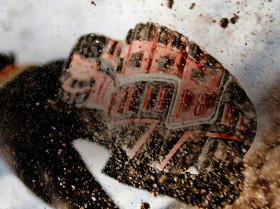It’s sad when we turn on the TV and are disheartened by decisions athletes make. It’s a complicated issue, really. They are just...people. Why do we choose to hold them to a high standard? Buy their jerseys? Spend a lot of money to watch them live? Professional sport is big business. If you are reading this, I don’t have to remind you of this. At a time when fans are given more access to athletes’ lives (internet, social media) we (coaches) - more than ever - need to focus on developing players’ humility, and their ability to serve as true team players. A good teammate is not just someone who passes the ball, puck, or communicates effectively during the game. In my humble opinion, it’s someone who makes decisions based a sense of humility. Why then, do so many independent schools give “sports credit” for a student to participate as ‘team manager’? Not only do these kids lose valuable time in their day when they could be getting physically fit or helping to field addition sports teams for the school, the athletes aren’t demonstrating independence for preparedness. I don’t fault the students who choose to participate in the roles of team managers, and it’s true that often the team managers feel a sense of belonging and have a very unique role within a team and relationship with team players. But, I just wonder how this impacts players’ development related to life skills. On one hand we advocate for sport because of all the “life lessons” it teaches, on the other hand we are not holding our players responsible to be model citizens within the team, school, and community.
It’s true, some players will learn humility because they won’t be the star of the team - but, there are only a few stars on a team. Shouldn’t youth athlete participants realize that the world is bigger than their life in sport? One scandal after another for professional athletes leads me to believe that we can do more at the youth, school, and collegiate levels in developing humility in our athletes.
It’s not just the independent school sport requirement that appears to be a be bit backwards to me. Just as odd (to me) is the notion of rookies filling up and/or carrying the water bottles. Huh? As an educator, when a child moves to a new community, the teachers, administration and class members go out of their way to welcome her/him to the community.
Why?
- We want the new child to feel safe.
- We want the new child to feel a sense of belonging.
- We want the new child to be happy and motivated to learn.
Yet often coaches fail to even question the “rights of passage” mentality to the rookies. I remember carrying water bottles and being barked at by older teammates - it was further more complicated if I had earned some playing time from them. This was (and, is) totally unnecessary.
Before you think it - no, it’s not “girl” thing. I have coached equal amounts of boys teams as girls teams. People always ask me the difference - you see, men say all the time they have to coach girls differently. I question this. I am not sure you have to coach girls differently, I just think it’s more socially acceptable (perhaps) for a male athletes not to express feelings of isolation, bullying, etc. to their coach if the coach is a female. I certainly had boys (high school age) tear up as they shared their feelings of frustration with issues in their lives.
 Team chemistry is team chemistry.
Team chemistry is team chemistry.
Foster Humility
If you want a team with a positive and effective team chemistry, consider ways to foster humility among your team. Establish a warm community that all participants can thrive it. Some suggestions worth considering include:
- Eliminate rookie tasks/chores from team dynamics. Develop a schedule where new participants are paired with older ones and together they complete tasks necessary for a successful training session to begin.
- Foster humility by having participants responsible for themselves. When athletes retire from sport - whether they are 18 or 36 or 75 - few will have water served to them. Why should they now? Let’s not set them up for a false sense of reality through sport. That’s not the purpose of sport.
- Match seasoned veterans with younger players to participate in some team building activities where they can get to know each other. This can be by playing position but should also match players with those they otherwise not spend a lot of time with at practices, etc.
- Encourage service learning experiences for athletes. Ideally, these team building activities mentioned above would involve community service so athletes are giving to the community as they represent their sport. Stocking shelves at a food bank, walking dogs at the local SPCA, are good examples of ways that athletes can bond while contributing to their community. (Sure beats the crazy hairspray/perfumed ridiculous get up the older soccer players at my high school required me to wear throughout the school day...ugh).
Team building and trust activities are not a waste of time. Either is service to community. Either is fostering humility in our athletes. As my former professor and mentor, Dr. Steven Danish stated, “Sport does not magically teach life lessons.” Coaches should plan to foster life lessons, such as humility in practices and community building activities. That’s when the power of sport will be observed at local levels and folks will rally together to promote and increase opportunity for sport participation, rather than talking about the most recent athlete scandal on ESPN/TSN.
I’d love to hear your thoughts!
How do you foster humility within your teams?
How do you reach out to serve your community through sport?
How do you promote team inclusion within your team?





